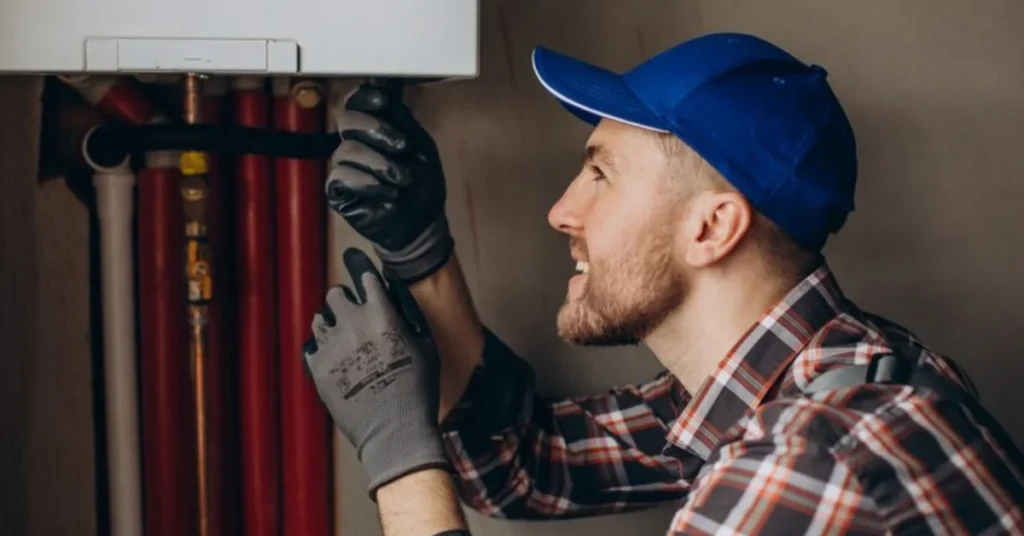A well-functioning water heating unit is essential for daily activities like showering, cleaning, and cooking. However, like any other appliance, it can develop issues over time, impacting its efficiency and reliability. Recognizing the warning signs early can help prevent larger, more expensive problems. This article explores the common indicators that your unit might need attention and why timely care is crucial.
Fluctuating Temperatures and Insufficient Hot Water
One of the first signs you may need water heater repair is inconsistent water temperature or a sudden lack of hot water. If you notice water alternating between hot and cold unexpectedly or not staying warm long enough, it’s a clear indication that something is wrong.
This issue might stem from sediment buildup, a faulty thermostat, or a damaged heating element. Left unchecked, these problems can worsen, leading to more significant repairs. Addressing temperature inconsistencies promptly ensures continued comfort and avoids disruptions in daily routines. Routine care also prevents more extensive damage to internal components, keeping the system efficient.
Rusty or Discolored Water
Water that appears rusty, murky, or has an unusual metallic taste could signal problems inside the system. Corrosion within the tank or aging internal components might release rust into the water supply. While rusty water can also originate from plumbing pipes, determining the source is essential.
Ignoring this issue may result in leaks or a complete system failure. Flushing the tank or replacing deteriorating parts can often resolve the problem and restore clean, clear water flow. Regular inspections help detect these issues before they escalate.
Strange Noises Coming from the Unit
Unusual sounds like banging, rumbling, or popping coming from the tank are signs of internal issues. These noises are typically caused by sediment buildup, which hardens over time and reduces the unit’s efficiency. The accumulation can cause the unit to overheat as it struggles to maintain temperature, leading to further wear and tear.
Regular maintenance, such as flushing the system, can help eliminate sediment and extend its lifespan. Addressing strange noises early prevents unnecessary strain on the system and ensures smoother operation. This proactive approach minimizes costly repairs and ensures consistent performance.
Leaks or Moisture Around the Unit
Puddles, moisture, or visible leaks near the unit are clear indicators of trouble. Leaks can result from loose connections, a cracked tank, or pressure buildup inside the system. Ignoring these signs can lead to water damage in surrounding areas, increasing repair costs. Regularly inspecting and addressing the unit for leaks can prevent property damage and keep the appliance functioning efficiently. If the tank itself is damaged, replacing it might be necessary to ensure long-term reliability. Taking quick action helps protect your property from extensive issues.
Why Regular Maintenance Matters
Regular maintenance and professional inspection are essential for keeping heating units in good condition. Scheduling routine checkups, such as those provided by Travis County Appliance Repair, can help identify potential problems before they escalate into costly repairs. Tasks like flushing the system, checking the thermostat, and inspecting connections ensure consistent performance and extend the appliance’s lifespan.
Property owners can avoid unexpected breakdowns and maintain access to hot water year-round by investing in professional routine care. Maintenance is also key to ensuring energy efficiency, which reduces operating costs over time. Understanding the importance of care helps maximize the unit’s functionality and reliability. Simple upkeep can make a significant difference in preventing future inconveniences.
Recognizing signs like fluctuating temperatures, discolored water, or unusual noises can indicate the need for water heater repair. Addressing these issues early ensures efficiency, prevents further damage, and avoids costly replacements. Regular maintenance is a proactive way to ensure consistent performance and long-term reliability, keeping daily routines running smoothly.







